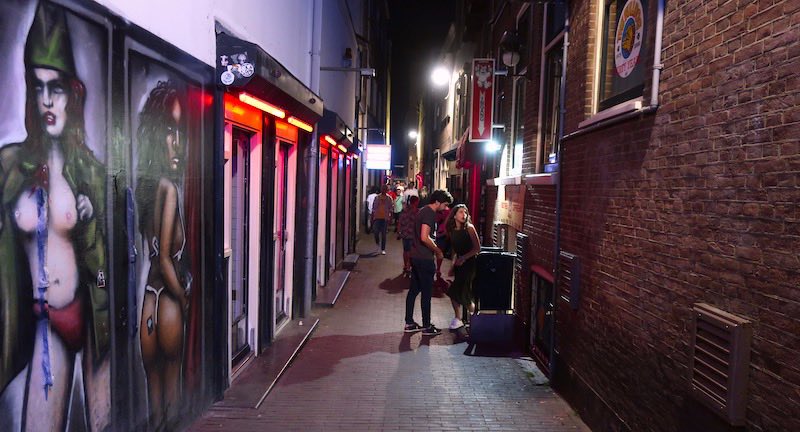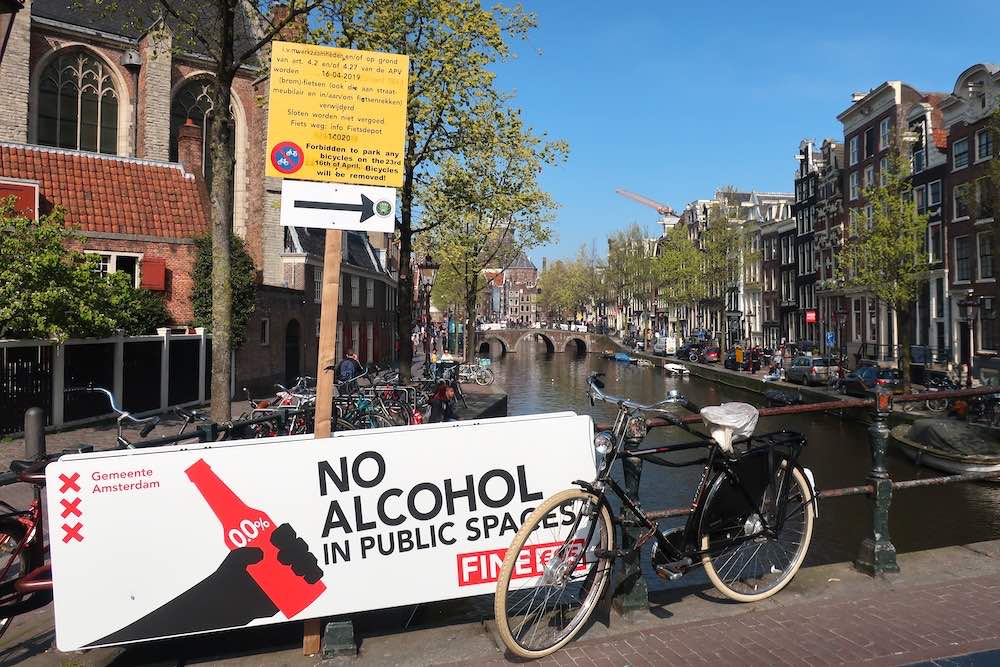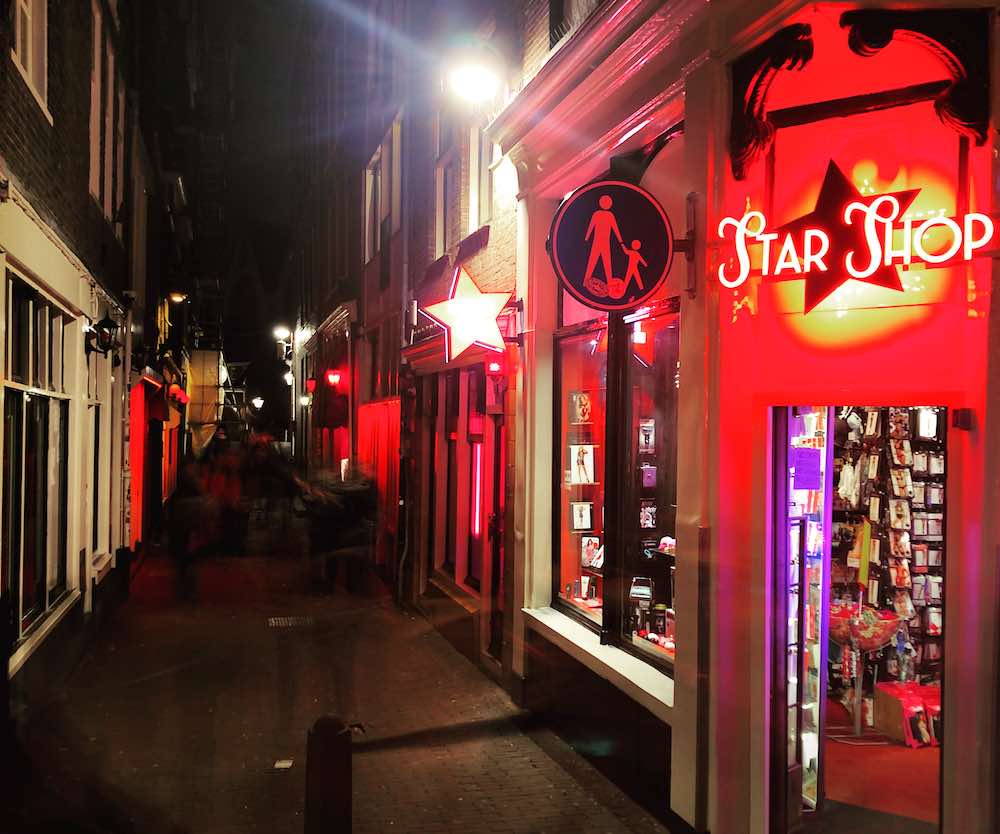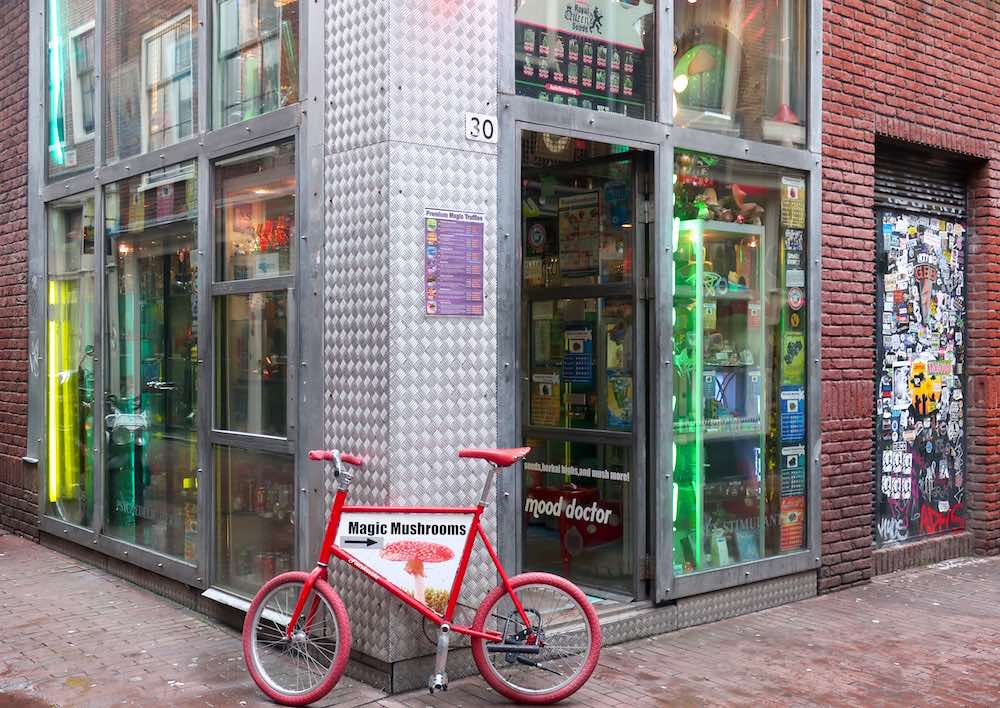New Prostitution Law Netherlands Will Have Opposite Effect
Posted on: Januar 1, 2024

New Prostitution Law In The Netherlands Is A Bad Idea
A prostitution law in the Netherlands aims at requiring a permit for sex workers. That is a bad idea, writes Marjan Wijers in Dutch newspaper De Volkskrant.
Criminalisation Of Prostitution
For the first time since 1800, Prostituierte are being criminalized again in the Netherlands, at least if it’s up to this Dutch cabinet. Under the banner of “protection”, the prostitution law Netherlands is a new attempt to introduce a national register of sex workers, now through a permit requirement.
Prostitution Law Netherlands Permit Requirements
For such a permit, the Sexarbeiterin must be at least 21 years old, be allowed to work here under the Aliens Act, and must undergo a ‘self-reliance test’: a conversation with an official who determines whether she (or he) is ‘self-reliant’ enough to be involved (allowed) in prostitution work. If the sex worker is found to be too light or there are suspicions of coercion, the permit will be refused. The argument is that by forcing sex workers to register there would be “more insight” into the prostitution industry and that this is necessary to prevent human trafficking.
Prostitution Laws In The Netherlands
Force doesn’t work without sanctions. A fine of more than 20 thousand euros can be imposed on sex workers without a permit. Clients of “unlicensed” sex workers risk one year in prison. Moreover, under the title “pimp prohibition”, the work and private relationships of “unlicensed” sex workers are criminalised. Examples include bookkeepers and drivers (maximum 2 years in prison).
For clarity, this has nothing to do with coercion, violence or deception, but only with sex workers who refuse to submit to forced registration. Coercion, violence, exploitation and deception have long been punishable; whether it’s forcing someone against his or her will to prostitute or forcing someone to donate money or to work under un-free circumstances. This bill doesn’t change anything and adds nothing. The use of the word “pimp” in the bill is therefore primarily false rhetoric and framing the debate.
Fighting Prostitution
It seems that this bill is more focused on combating prostitution than on combating coercion and violence. That would also be consistent with the beliefs of Mr Segers and his ChristenUnie (Christian political party) colleagues. The major driving force behind this new bill. The problem is that anti-prostitution Gesetze tend to promote coercion and violence. If the government were really concerned with combating abuses, there’s a growing body of research that shows that any form of criminalization has negative effects on the safety, health and rights of sex workers. This is the reason why Amnesty International and Human Rights Watch argue for complete decriminalisation of sex work as the only way to guarantee the human rights of sex workers. This includes protection against coercion, violence and exploitation, the exact opposite of this bill.
Sex Work Stigma
This isn’t the first attempt at introducing a national registration obligation for sex workers. The last one died in the Senate, among other things, because the registration obligation itself creates a new “illegal” circuit. A considerable group of sex workers will not want to or cannot register. They do not want to, because they want to protect their privacy because of the stigma in view of possible other work, family, children and the possibility of ever being able to change work.
Privacy
There is a great fear that data will become public and confidence in data protection and the government is small. Consider the student who pays for her studies with sex work, but who may later become a judge or politician. Once registered as a prostitute, it will hang over her head for the rest of her life. Or those unable to register, because they are under 21, do not have the correct papers or do not pass the “self-reliance test”.
This group will include the most vulnerable sex workers: young and non-European sex workers. They too become punishable, at the expense of their access to and accessibility of healthcare and assistance. And when they are confronted with coercion and violence, they will no longer be able to go to the police safely. They themselves would be breaking the law. Until now, emergency workers could promise victims that, whatever they were told, they themselves are not punishable. That is no longer possible in the future.
Human Trafficking
It also seems to be a misunderstanding that human trafficking is primarily about saving “innocent” girls, which means non-sex workers. But sex workers are also victims of human trafficking. They have the same right to protection against violence as non-sex workers.
If there is anything that needs to be combated from a feminist and human rights point of view, It’s the idea that women’s protection worthiness depends on their sexual purity.
Sex Workers Know The Industry
Finally, consider sex workers as partners in tackling abuses rather than as mischievous children or “controllable objects” by police, state, and operators. Or even worse, as “enemies” who have no eye for the victims. Sex workers are mature people, they are the first to have an interest in a clean sector. They know their sector like no other, including policy makers. Sex workers are not the problem, they are part of the solution.
What do you think of this new proposed prostitution law in the Netherlands? Let the world know by posting your comment below.
ALSO READ:
Amsterdam Escorts: 10 Top Escort Sites in Holland
13x Amsterdam Red Light District Laws
















Thank you for this great article. I am based in germany, where this dreadful registration is already in place and it is widely acclaimed to have failed each and every single goal it wanted to achieve. On top of that, many colleagues now have been pushed into the underground and are afraid to seek help, protection, they avoid all authorities.
I am jolted backward and suffocated by the ignorance Netherlands lawmakers display as sex workers are required to register. I have always viewed (mistakenly) these officials to be forward leaning, progressive, and in-step with tomorrow, not yesterday. Disappointed deeply.
Steven MORETZ
Las Vegas, NV USA
I have always regarded the Netherlands as a forward thinking nation as regards sex workers rights, but this terrible bills a step back into the dark ages, I am a transgender sex worker in the UK and was hoping to move to the netherlands to work in sex work because of b the kind and understanding reputation you have over here in UK, but this bill horrifies me, please think again as you will be putting lives at risk have always had high regard for dutch attitudes towards my industry, please do not disappoint me in this